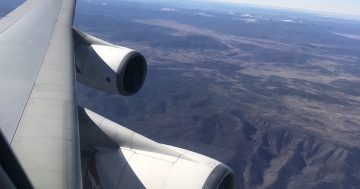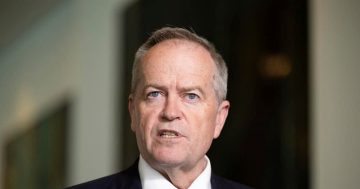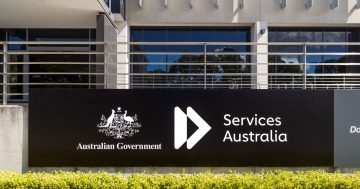
Serina Huang (aka Ms Frugal Ears) takes a look at what last weeks Budget announcement will mean for most Canberran families.
Middle class Australia isn’t going to be much better off
The average middle class Australian will pay more in several ways.
I don’t think it is quite that drastic, but the average middle class Australian will pay more in several ways. This is despite the Treasurer announcing at the start of his speech that many families have not had a pay rise in some time, and that some families have split up due to financial pressures.
Medicare levy is going up from 2% to 2.5%
Ouch. For most families, this means an increase of at least $425. At least, as far as I can see, there are no further changes to private health insurance. I am in that situation where I must pay more tax if I don’t have private health insurance, but if I do use my health insurance I get lugged with a huge gap. That said, having had urgent surgery nearly ten years ago that wouldn’t have been possible without going into the private system, I count the mostly unused policy as a blessing.
The increase in Medicare will go to fund the National Disability Insurance Scheme (NDIS) black hole. I am not surprised there is a black hole. My eldest son has a disability, and let me say that I am appalled at the bureaucratic hurdles and processes involved in getting him early intervention. I could vent and vent about NDIS, but I am going to stop here. I believe NDIS is out of control and I believe it is impossible to fix because any negative comment against its management and costs blowout will be construed as discrimination against people with a disability. I also feel sorry for those people who were previously getting assistance with a condition who are no longer eligible for support because supporting services have moved to NDIS but the condition has not been classified as a ‘disability’.
The Budget will lift the freeze on Medicare, and establish a Medicare Guarantee Fund to meet the ongoing costs of Medicare and the Pharmaceutical Benefits Scheme. It will also phase the reintroduction of certain items on Medicare – I am unclear (and couldn’t yet find out) whether support for medical services often used by women including ultrasounds and mammograms will be reintroduced. The 2014 Budget discriminated against women’s health services and I am surprised there was not more outcry about it at the time.
$800 million is being allocated to mental health, including issues affecting women such as post-natal depression. Canberra has traditionally had a poor record on funding mental health initiatives, so hopefully some of this funding will go to support those that need it.
Childcare
Canberra has the most expensive childcare in Australia, with costs of approximately $100 to $120 per day per child. It costs so much in Canberra that at the moment only people earning at least $75,000 to $80,000 per year can realistically afford it. Many (usually) women are better off financially staying at home – at least in the short-term.
If you are a dual income family earning a decent middle income salary you are probably slightly better off – but not necessarily as the childcare rebate is now means tested. The changes will provide up to 85% of childcare costs for low income families (a big improvement), and up to 50% for families on incomes of $170,710 to $250,000. For people in the lower bracket there is also no longer an annual cap. Then the childcare rebate starts going down. There will be a $10,000 annual cap on families earning more than $185,710, then childcare tapers down gradually to 20%. Couples earning over $350,000 are not eligible for the childcare rebate.
Energy
The good news is that if you are a pensioner or concession holder you will get a one-off payment before 30 June of $75 (or $125 for a couple) to help pay your winter power bill. You will need it because in some cases prices will go up by 30% (they will increase by up to 10.9% in the ACT). The Government is investing heavily in Snowy Mountains Scheme 2.0 and has also asked the ACCC to conduct a review into competition in the energy sector. But for now your energy bill is going to go up and there are no immediate prospects for it to change.
University students
While the worst of possible cuts have been reversed, university students will not get much of a reprieve. Studying in Australia is already becoming very expensive even compared with countries such as the US.
Housing affordability
The Budget is introducing a new savings scheme for first home buyers that functions similar to a superannuation scheme. In fact, you can use the same superannuation provider but just put money into the First Home Super Saver Scheme instead. From 1 July 2017 first home buyers can contribute up to $15,000 per year and $30,000 in total in voluntary contributions. The benefit is that the savings can be made in a tax effective way. The risk is that if house prices continue to increase, $30,000 for a single (or combined $60,000 for a couple) might still not be enough. But at least it will encourage savings.
Older Australians are also being encouraged to downsize. From 1 July 2018 people aged 65 and older can sell their house and contribute up to $300,000 from the sale into their super. This measure is designed to make it easier for young people to provide houses but improving supply. But realistically, is someone buying their first home likely to be able to afford these homes, which are perhaps likely to be larger and in suburbs that might now be unattainable for younger people? What is likely to happen is that older people who had been thinking of downsizing will hold off for a year, creating further shortage in housing in the ACT. The market will then see a rush of housing being placed on the market.
According to the Treasurer, if you have a roof over your heads, then all of life’s other challenges become a little more manageable. The Government is giving an additional $375 million over three years in funding for homelessness, to be matched by the States. That said, here in Canberra homelessness is such a chronic problem (and the cost of rentals are going up) that I doubt this would go far in addressing the problem longer term.
Banks
Several measures are being introduced to encourage more competition in banking. This will ultimately be good for consumers, but if you own lots of shares in big four banks you might want to reassess the longer term prospects. It is time to reinvestigate banking with smaller and regional banks, which are likely to offer better prospects for products, customers service and investment.
Infrastructure spending
There is a lot of major infrastructure spending outlined in the Budget. If you are a property investor, you may want to look at where these will be and buy nearby (e.g. Western Sydney for the airport and Cooma for the Snowy Mountain scheme). Some of these areas are close to Canberra, but sadly not in Canberra. That said longer term there may be flow on effects for the Canberra economy, in the same way that the original Snowy Mountains scheme had a role in encouraging migrants to settle in Queanbeyan and Canberra. If you are considering a career change or what to study at University, anything infrastructure related (e.g. engineering or construction) is likely to have good prospects at least for the next decade. For Commonwealth public servants, a project management qualification is something that could be a good asset to have in a CV.
So tell me, do you think you will be better or worse off under this Budget? Has the ACT has gotten a good deal out of the Budget?
2017-18 Federal Budget coverage:
- Revenue is a focus of this year’s Federal Budget.
- Good news for small business but Canberra vetoed for infrastructure spend.
Catchup on our LIVE coverage from Hotel Realm: Andrew Sykes from RSM Australia dissecting “The Rocky Horror Budget”. It was just a jump to the left for Malcolm Turnbull, but still a step to the right with continued attacks on public service pay growth and decentralisation. The impacts of the Budget for Canberra are in the detail – not the headlines.
Federal Budget 2017-18 – RSM overview.
Federal Budget 2017-18 – RSM pdf presentation.



















